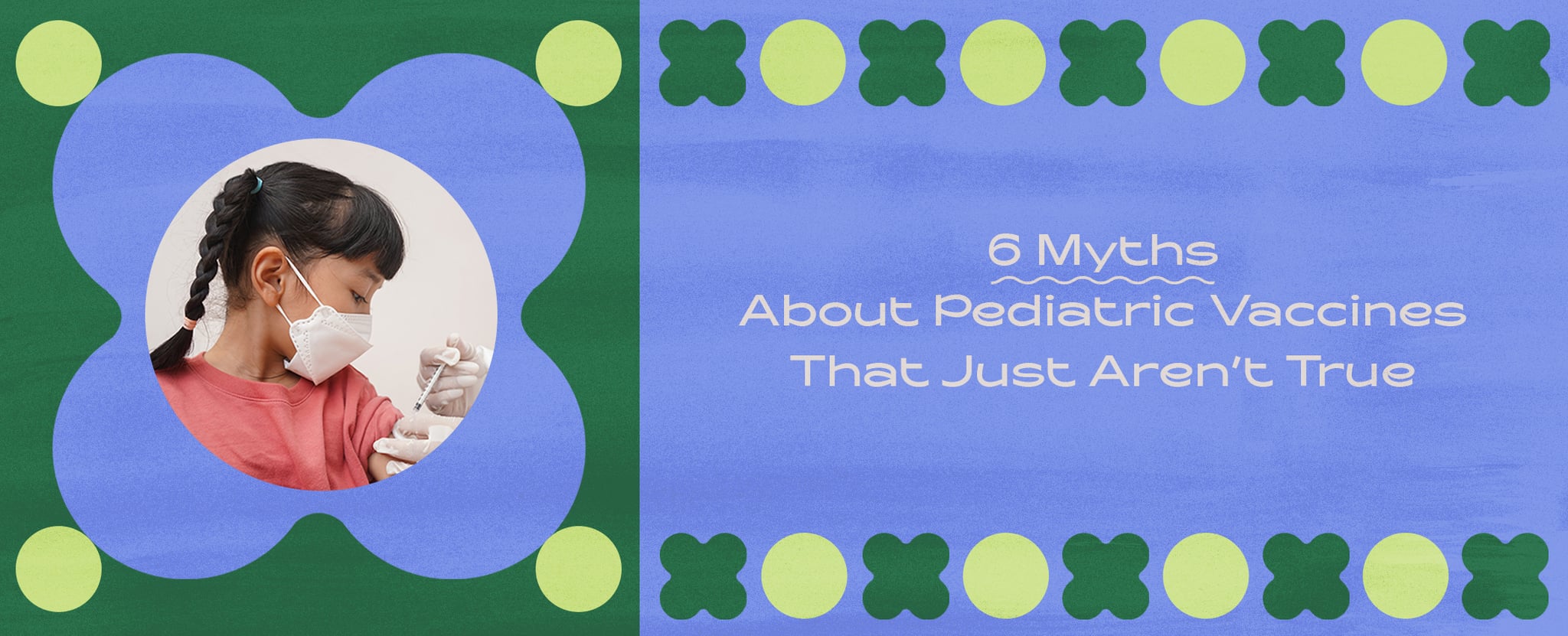
Busting Myths Around Pediatric Vaccinations
6 Myths About Pediatric Vaccines That Just Aren't True
Myth 1:
It's a good idea to delay vaccines until your baby is bigger and older.
Sometimes, the very thing that might make parents fearful of vaccines — keeping their newborn baby safe and healthy — is the exact reason they should get them vaccinated. "Vaccines are proven to [help] protect them from diseases that are more common during early childhood when the child has not developed natural immunity against them," Dr. Aramburu de la Guardia says. The CDC-recommended vaccine schedule was designed with this in mind, and pediatricians all agree that staying on track is the best way to ensure timely protection against disease.
Myth 2:
It's not safe to get multiple vaccine shots at a time.
According to the CDC, scientific data show that getting several vaccines at the same time is safe and the vaccines are just as effective when taken together as they are alone. In fact, when every new vaccine is licensed, that means it has been tested along with the vaccines already recommended for a particular aged child.
Plus, there are actually several advantages to giving children more than one vaccine shot at a time. The most simple is that it saves time because you have to come to fewer office visits. It can also be less traumatic for the child to get multiple shots out of the way at one time rather than subjecting them to many office visits.
Myth 3:
If you didn't vaccinate your child when they were a baby, it's too late to catch up.
In this case, the old saying of "you snooze, you lose" is not true. "While it's best to follow the [CDC-recommended] immunization schedule, it's never too late to catch up your child on their vaccinations," Dr. Aramburu de la Guardia says. Talk to your child's pediatrician, who can help develop a CDC-recommended schedule based on your child's age to get them caught up.
Myth 4:
Your child can get sicker from the shot than they would from the disease.
It's a myth that vaccines contain harmful chemicals that are going to cause a reaction in your child. "The most common reactions to vaccines are short lived and local," Dr. Aramburu de la Guardia says. Think: slight fever, a temporarily sore arm or leg, or a little redness. The diseases that these vaccines help protect from, however, can cause serious and long-term health issues. "In the past, some diseases led to hearing loss, severe function impairment, and death," Dr. Aramburu de la Guardia explains.
Myth 5:
Breastfed babies don't need to be vaccinated.
Breast milk is awesome, but it's not powerful enough to take out a disease. "While breastfed babies do get a lot of antibodies and immunity from breast milk, they're still not protected against the major [diseases] that vaccines are meant to [help] protect them from," Dr. Aramburu de la Guardia says. "As a pediatrician, I recommend breastfed babies receive their full [CDC-recommended] immunization schedule."
Myth 6:
There's no reason to vaccinate yourself against diseases that no one even gets anymore.
Staying on top of vaccinations is what keeps these diseases under control. Most of them do still exist: "We have seen outbreaks of measles and other diseases in places where people aren't vaccinating," Dr. Aramburu de la Guardia explains. "When that happens, herd immunity is disrupted." Meaning it's much more likely for your baby to actually contract one of these diseases. So talk to your doctor to discuss any concerns about vaccines, and visit BabyCheckupsCount.com to learn more about why checkups are so important.
This article was developed with financial support by and in collaboration with Pfizer, Inc.
